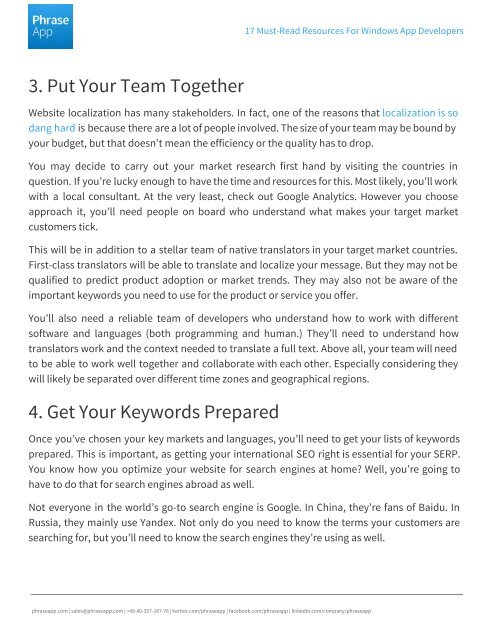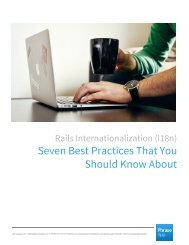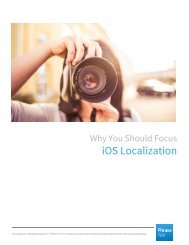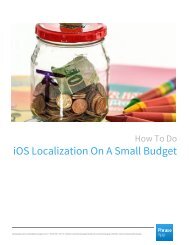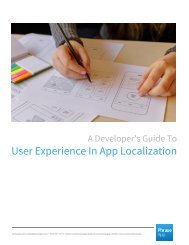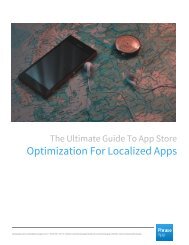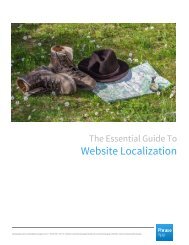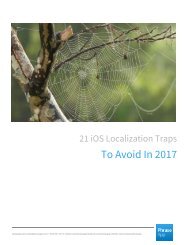9 Steps To Get Your Website Localization Started
You also want an ePaper? Increase the reach of your titles
YUMPU automatically turns print PDFs into web optimized ePapers that Google loves.
17 Must-Read Resources For Windows App Developers<br />
3. Put <strong>Your</strong> Team <strong>To</strong>gether<br />
<strong>Website</strong> localization has many stakeholders. In fact, one of the reasons that localization is so<br />
dang hard is because there are a lot of people involved. The size of your team may be bound by<br />
your budget, but that doesn’t mean the efficiency or the quality has to drop.<br />
You may decide to carry out your market research first hand by visiting the countries in<br />
question. If you’re lucky enough to have the time and resources for this. Most likely, you’ll work<br />
with a local consultant. At the very least, check out Google Analytics. However you choose<br />
approach it, you’ll need people on board who understand what makes your target market<br />
customers tick.<br />
This will be in addition to a stellar team of native translators in your target market countries.<br />
First-class translators will be able to translate and localize your message. But they may not be<br />
qualified to predict product adoption or market trends. They may also not be aware of the<br />
important keywords you need to use for the product or service you offer.<br />
You’ll also need a reliable team of developers who understand how to work with different<br />
software and languages (both programming and human.) They’ll need to understand how<br />
translators work and the context needed to translate a full text. Above all, your team will need<br />
to be able to work well together and collaborate with each other. Especially considering they<br />
will likely be separated over different time zones and geographical regions.<br />
4. <strong>Get</strong> <strong>Your</strong> Keywords Prepared<br />
Once you’ve chosen your key markets and languages, you’ll need to get your lists of keywords<br />
prepared. This is important, as getting your international SEO right is essential for your SERP.<br />
You know how you optimize your website for search engines at home? Well, you’re going to<br />
have to do that for search engines abroad as well.<br />
Not everyone in the world’s go-to search engine is Google. In China, they’re fans of Baidu. In<br />
Russia, they mainly use Yandex. Not only do you need to know the terms your customers are<br />
searching for, but you’ll need to know the search engines they’re using as well.<br />
phraseapp.com | sales@phraseapp.com | +49-40-357-187-76 | twitter.com/phraseapp | facebook.com/phraseapp | linkedin.com/company/phraseapp


